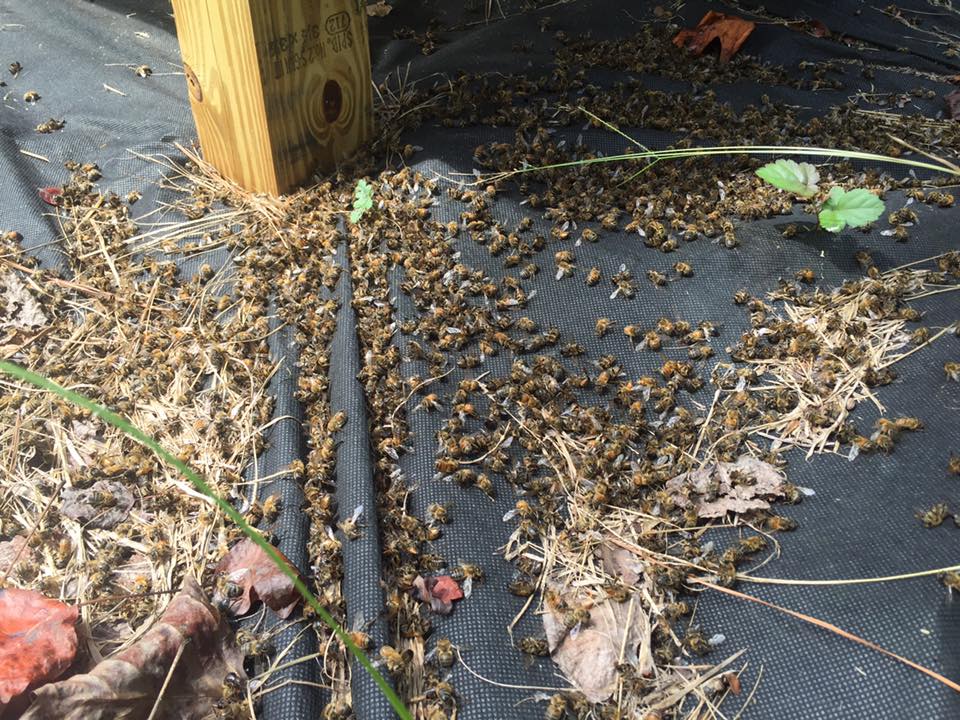There’s only been four people diagnosed with Zika virus in Dorchester County, South Carolina, but there have been millions of other victims due to the fight against the virus.

Millions of bees died last week when the county used, for the first time, an aerial spray of a pesticide aimed to control the mosquito population.
“My bee yard looks like it’s been nuked,” Juanita Stanley, owner of Flowertown Bee Farm in Summerville, S.C., told The Post and Courier.
Stanley makes her living raising bees and says over two million of them died after the fogging.
READ MORE: How you can help save the bees
“It’s not about the honey. It’s about saving the bees,” she said. “I am trying to do the opposite of what just happened. They are in a sanctuary where I can protect them, and now they are destroyed.”
Andrew Macke, a hobby beekeeper in the area, said he lost thousands of bees.

Get breaking National news
“I was angry that day, I just couldn’t wrap my head around the fact that we spray poison from the sky”, Andrew Macke told WCBD News.
Local news outlets report that county officials have apologized for failing to adequately notify local beekeepers about the mosquito spraying last weekend.
“This includes protecting citizens from insect bites from pests such as mosquitoes that carry viruses including West Nile and Zika,” reads a statement on their website.
Pesticides have often been linked to the decline in bee populations around the world. The pesticide used in Dorchester County, Naled, is toxic to bees, reports the Washington Post.
Residents in the area are also concerned about the lack of notice of aerial spraying. A Change.org petition says not enough information was given about the event and its possible side effects.
There are no more scheduled aerial sprayings in Dorchester County.








Comments